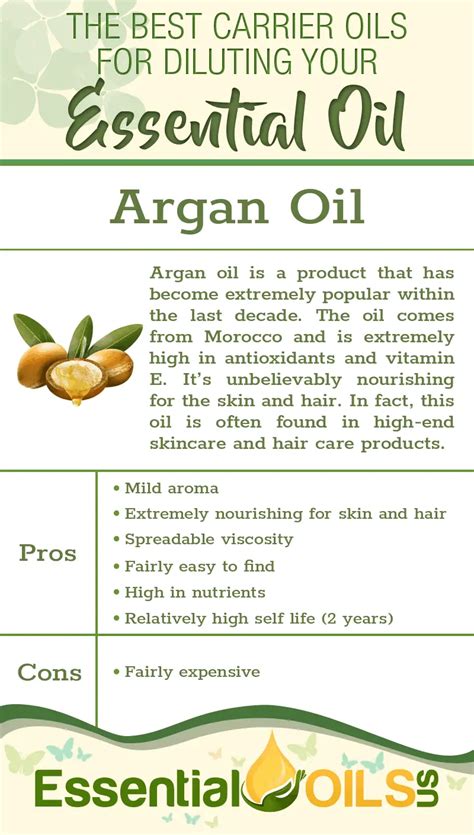Introduction
Essential oils offer a myriad of therapeutic benefits, but they are highly concentrated and must be diluted before topical application. Carrier oils serve as a safe and effective medium to dilute essential oils, enhancing their absorption and reducing the risk of skin irritation. This comprehensive guide delves into the world of carrier oils, exploring their uses, benefits, and the best pairings with various essential oils.

What are Carrier Oils?
Carrier oils are vegetable-based oils that are rich in fatty acids and other beneficial compounds. They act as a base or diluent for essential oils, facilitating their application and reducing their potency. Carrier oils generally have a neutral scent and do not interfere with the therapeutic properties of essential oils.
Benefits of Using Carrier Oils
- Enhanced Absorption: Carrier oils promote the absorption of essential oils into the skin, allowing them to exert their effects more effectively.
- Reduced Skin Irritation: Essential oils are highly concentrated and can irritate sensitive skin. Carrier oils dilute them, minimizing the risk of redness, itching, or burning.
- Increased Shelf Life: Essential oils diluted in carrier oils have a longer shelf life compared to undiluted oils.
- Soothing and Nourishing: Carrier oils are rich in vitamins, minerals, and antioxidants, providing additional skin benefits such as hydration, nourishment, and protection.
Choosing the Right Carrier Oil
The ideal carrier oil for you depends on your skin type, preferences, and the purpose of the application. Here are some popular choices:
| Carrier Oil | Skin Type | Benefits |
|---|---|---|
| Jojoba Oil | All skin types | Lightweight, non-comedogenic, rich in antioxidants |
| Sweet Almond Oil | All skin types | Gentle, soothing, rich in vitamin E |
| Grapeseed Oil | Oily, acne-prone skin | Lightweight, non-greasy, helps balance sebum production |
| Coconut Oil | Dry, mature skin | Nourishing, moisturizing, has antibacterial properties |
| Argan Oil | Dry, aging skin | Rich in vitamin E and essential fatty acids, helps reduce wrinkles and fine lines |
Essential Oil and Carrier Oil Pairings
When choosing carrier oils to pair with essential oils, consider the following guidelines:
- Skin-friendly oils: Opt for carrier oils that are suitable for your skin type to avoid irritation.
- Therapeutic synergy: Select carrier oils that complement the therapeutic benefits of the essential oils you intend to use.
- Scent compatibility: Choose carrier oils with a neutral or complementary scent that does not overpower the aroma of the essential oils.
How to Dilute Essential Oils in Carrier Oils
To dilute essential oils in carrier oils, follow these simple steps:
- Determine the desired dilution ratio: This varies depending on the essential oil and the intended use. Refer to the specific dosage recommendations for each essential oil.
- Measure the carrier oil: Using a measuring spoon or pipette, measure the required amount of carrier oil.
- Add the essential oil: Drop the essential oil into the carrier oil and stir thoroughly to blend them well.
- Use or store: The diluted mixture can be used immediately or stored in a dark glass bottle for future use.
Common Pitfalls to Avoid
To ensure the safe and effective use of carrier oils with essential oils, avoid these common mistakes:
- Overdilution: Diluting essential oils too much can reduce their therapeutic benefits.
- Using expired oils: Always check the expiration dates on carrier oils and essential oils before using them.
- Applying undiluted essential oils: Never apply undiluted essential oils to the skin, as they can cause irritation or allergic reactions.
- Mixing incompatible oils: Certain carrier oils may not be compatible with specific essential oils. Research the compatibility of different oils before mixing them.
Innovative Applications for Carrier Oils
Beyond their traditional uses, carrier oils offer countless innovative applications:
- Infused Aromatherapy Oils: Dilute essential oils in carrier oils and add them to diffusers or humidifiers to create a calming or invigorating atmosphere.
- Soothing Massage Oils: Combine carrier oils with relaxing essential oils, such as lavender or chamomile, to create soothing massage oils that promote relaxation and reduce stress.
- Body Care Products: Add carrier oils to handmade soaps, scrubs, and lotions to nourish and pamper the skin.
- Bath Soaks: Dilute essential oils in carrier oils and add them to bathwater to create a luxurious and relaxing bathing experience.
Conclusion
Carrier oils play a crucial role in the safe and effective use of essential oils. Understanding their benefits, properties, and proper use is essential for maximizing the therapeutic potential of essential oils. By choosing the right carrier oil for your needs and following the recommended guidelines, you can reap the full benefits of essential oils while minimizing the risks of irritation or adverse effects.
